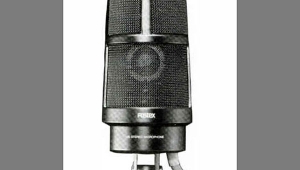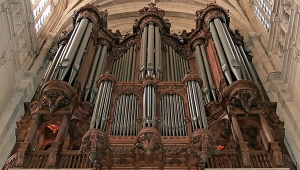| Columns Retired Columns & Blogs |
Workin' on the Railroad About the Equipment
Sidebar: About the Equipment
The heart of MFPN's mobile recording system is Colossus, a 4-channel digital processor designed for Brad by Lou Dorren (who developed a 4-channel broadcast system called Quadracast and the phase-locked loop circuit used by JVC for their CD-4 decoder), and manufactured by a firm called By The Numbers. It's a 16-bit linear-encoding system, but uses a proprietary code which is claimed to provide wider dynamic range with much lower distortion than any other digital audio system. Remarkably small in size (similar to that of an expensive tubed preamp), Colossus's name would appear to refer less to its dimensions than to its hype.
The 4-channel microphone is a self-powered FM condensor system, originally designed (from scratch) by Carl Countryman. Countryman had made a similar mike for Brad in 1969 from a Neumann SM-2, and also custom-built for him his first 4-channel portable tape recorder, a battery powered 30-ips unit that used ½" tape. (Miller has been making outdoor 4-channel recordings since 1970, releasing excerpts from some of them on disc for public sale. Only recently has the film industry become concerned enough about sound to show an interest in MFPN's work.)
The "FM" here has nothing to do with wireless communication, but describes the operating principle of the microphone. The condensor capsule is part of the LC (coil/capacitor) tuned resonant system of an oscillator. Diaphragm movements vary the value of C, changing the oscillator's frequency, and these changes are converted to audio signals by conventional FM demodulation. The main advantage of an FM mike is high output and very low noise (typically several tenths of a volt of output, compared with a millivolt or so from other microphone types). The disadvantages are complexity and cost.
The mike is not being manufactured as yet. In fact, its design is not yet finalized. When available for sale, though, it is expected to sell for a cool $8.5 grand, to professional users and well-heeled amateur recordists.
Colossus, on the other hand, is being manufactured now, and can be purchased for only $15,000—plus an additional $5000 if you want the black box that converts the Colossus code to Sony 1630 (CD) code.—J. Gordon Holt
- Log in or register to post comments























